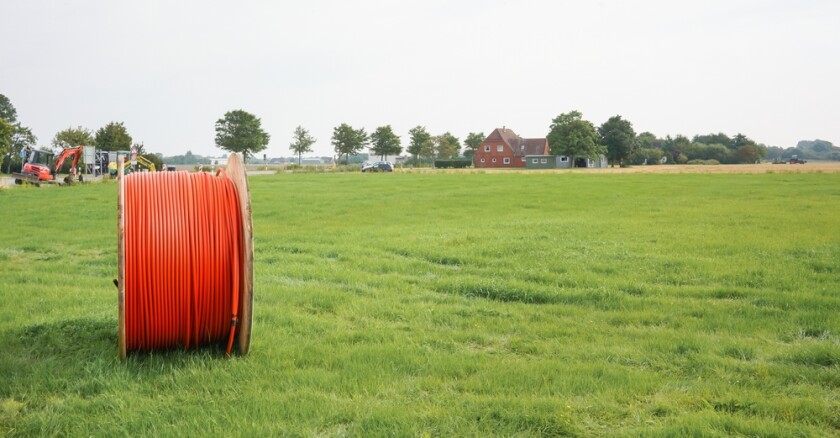Plus, Pennsylvania announces millions of dollars in new broadband funding, the FCC aims to expand Internet choice for residents of apartment buildings, and more.
March 07, 2024 •
Julia Edinger

Shutterstock
This week in “What’s New in Digital Equity” — our weekly look at government digital equity and broadband news — we have a number of interesting items, which you can jump to with the links below:
Digital Equity Champions Recognized at Net Inclusion 2024
A GUIDE TO BUILDING A PUBLIC BROADBAND NETWORK
The Benton Institute for Broadband and Society published a new handbook from the American Association of Public Broadband yesterday, Own Your Internet: How to Build a Public Broadband Network.
This guide aims to help support communities in building their own broadband networks, adding to the nearly 650 community-owned broadband networks and co-ops nationwide. The guide offers information on the steps required to be successful in doing so and other resources that could support these efforts.
The guide, authored by Bill Coleman of Community Technology Advisors, builds on similar guidebooks that were previously published by the Benton Institute, such as Accelerate: A Community Broadband Planning Program.
Building a community broadband network involves careful and comprehensive planning. Through this new resource, community leaders will have access to information about the logistical, technical, financial and political challenges related to this work.
The guidebook comes complete with relevant information about law firms, financial advisers, public relations firms, construction firms, equipment vendors, grant application and management platforms, firms that build and operate networks, and more.
“Every community has a stake in this broadband moment — and they must have the tools they need to decide how they will meet their connectivity needs,” said Benton Institute Executive Director Adrianne B. Furniss in the announcement
The announcement underlines the value of this resource in bringing “local control and choice” to localities.
$20M APPROVED TO SUPPORT DIGITAL EQUITY IN PENNSYLVANIA
In other state news, the Biden-Harris administration announced that $20 million for digital connectivity projects in Pennsylvania through the Capital Projects Fund has been approved. This builds on the $200 million in funding that was awarded in the state last year.
The funding will support the work of the Pennsylvania Broadband Development Authority (PBDA) to purchase and distribute Internet-enabled devices to schools, libraries, municipalities, and nonprofit and workforce training organizations.
As PBDA Executive Director Brandon Carson said in an announcement, communities without reliable broadband access rely on anchor institutions like these, and these institutions have a need for updated resources. This funding aims to help these institutions better support the communities they serve.
FCC ANNOUNCES PLAN TO EXPAND BROADBAND CHOICE IN APARTMENTS
At the federal level, the Federal Communications Commission (FCC) is continuing to push for digital equity. This week, the FCC announced a plan to both lower costs and expand options for broadband services for people living in apartments and other multi-tenant buildings. The proposal aims to end bulk billing arrangements. As FCC Chairwoman Jessica Rosenworcel said in the announcement, “it is not right” for an apartment complex to choose the broadband service for a household and limit consumer choice.
The notice of proposed rulemaking would allow tenants to opt out of such arrangements. The FCC would also seek comment on other ways that consumer choice is limited for households in multi-unit buildings.
REPORT: CONNECTING MINORITY COMMUNITIES PILOT PROGRAM
A new report from Next Century Cities explores the impact of the Connecting Minority Communities Pilot Program.
The first round of historic Black colleges and universities has received grant funding through the program, which is administered by the National Telecommunications and Information Administration. The report examines how much funding different institutions have received and what their plans are for using that funding.
The report also offers recommendations for the work to continue beyond this funding: 1) use new data to expand research, 2) create templates for program implementation, 3) make report findings available for future applicants, 4) foster digital skills in the workforce, and 5) connect communities.
DIGITAL EQUITY CHAMPIONS RECOGNIZED AT NET INCLUSION 2024
One of the announcements that came out of Net Inclusion 2024, which was held in Philadelphia last month, was the 2024 Digital Equity Champions. The National Digital Inclusion Alliance created this award in 2016 and has recognized 15 champions since.
The 2024 Digital Equity Champion recognized as an emerging leader is Karimullah Kamwar, who serves as the digital empowerment manager at the Syracuse Northeast Community Center. Norma E. Fernandez, CEO at EveryoneOn, was also recognized as a Digital Equity Champion. Finally, Adrienne Pruszynski, co-founder and program director at Renaissance 21 was recognized as a Digital Equity Champion.
The nomination period for these awards opened late last year and is expected to open again this year in November.

Julia Edinger is a staff writer for Government Technology. She has a bachelor's degree in English from the University of Toledo and has since worked in publishing and media. She's currently located in Southern California.
No comments:
Post a Comment